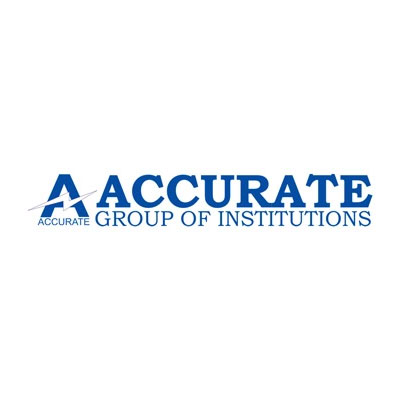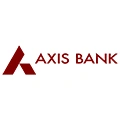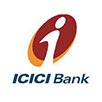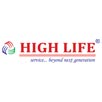Defining Blockchain:
At its core, blockchain is a decentralized and distributed ledger designed to record transactions across a network of computers. Unlike traditional centralized systems, where a single entity oversees and validates transactions, blockchain operates on a peer-to-peer network. This decentralized architecture ensures transparency, security, and immutability, making it applicable to a wide array of use cases beyond the domain of cryptocurrencies.
Key Components of Blockchain:
Blocks:
The fundamental units of a blockchain are aptly named blocks. Each block contains a list of transactions and a unique identifier known as a hash. Generated through a complex cryptographic algorithm, this hash serves as a digital fingerprint, safeguarding the integrity and security of the information within the block.

Chain:
The sequential arrangement of blocks creates a chain, forming the basis of the term "blockchain." The connection between blocks is established by including the hash of the previous block in the current one. This interlinked structure ensures that any attempt to tamper with the data in a single block would necessitate altering all subsequent blocks, providing inherent resistance against manipulation.
Decentralization:
Decentralization is a cornerstone feature of blockchain. Instead of relying on a central authority, multiple nodes (computers) within the network independently validate and confirm transactions. This not only enhances security but also mitigates the risk associated with a single point of failure while promoting transparency.
Understanding How Blockchain Works:
A comprehensive understanding of blockchain involves delving into its transaction validation and consensus mechanisms. When a participant initiates a transaction, it is broadcasted to the network for validation. Nodes in the network independently verify the authenticity of the transaction and collectively reach a consensus on its legitimacy. Once consensus is achieved, the transaction is recorded in a new block, subsequently added to the existing chain.
Types of Blockchains:
Public Blockchains:
Public blockchains, exemplified by Bitcoin and Ethereum, are open to anyone interested in participating. Participants can join the network, validate transactions, and contribute to the creation of new blocks. While this openness ensures transparency, it can pose challenges related to scalability and privacy.
Private Blockchains:
In contrast, private blockchains restrict access to a specific group of participants. Often employed by enterprises for internal processes, private blockchains offer greater control, scalability, and privacy. However, they sacrifice the level of decentralization found in public blockchains.
Consortium Blockchains:
Consortium blockchains strike a balance between public and private models. In this hybrid approach, a pre-selected group of nodes maintains the blockchain, combining elements of decentralization and controlled access.
Applications of Blockchain:
Cryptocurrencies:
The most prominent and pioneering application of blockchain is within the realm of cryptocurrencies. Bitcoin, the trailblazer in this domain, leverages blockchain to facilitate secure, transparent, and decentralized peer-to-peer transactions.

Smart Contracts:
Smart contracts represent self-executing contracts with predefined terms encoded directly into code. These contracts automatically execute and enforce agreements when specific conditions are met, eliminating the need for intermediaries, and reducing the risk of fraud.
Supply Chain Management:
Blockchain is increasingly finding application in supply chain management, offering enhanced transparency and traceability. It enables stakeholders to track the movement of goods from source to end consumer, reducing the risk of fraud and improving overall efficiency.
Healthcare:
The healthcare sector is exploring blockchain to secure patient records, facilitate interoperability between different systems, and streamline processes such as billing and insurance claims. Blockchain's inherent security features can play a crucial role in protecting sensitive medical information.
Accurate Institute of Management and Technology, Greater Noida, and Blockchain:
As an institution dedicated to providing quality education in management, the Accurate Institute of Management and Technology in Greater Noida can play a pivotal role in preparing students for the digital future. By incorporating blockchain into its curriculum, AIMT Greater Noida can offer specialized courses and workshops that cover the theoretical and practical aspects of this transformative technology.
Students at AIMT Greater Noida can benefit from hands-on experience with blockchain applications, gaining insights into its potential across various industries. Moreover, the institute can facilitate industry collaborations and partnerships to expose students to real-world applications of blockchain, enhancing their readiness for the evolving job market.
Challenges and Future Outlook:
While the potential of blockchain is vast, there are several challenges that must be addressed for widespread adoption. Scalability, energy consumption, and regulatory uncertainties remain significant hurdles. However, ongoing research and development efforts are dedicated to overcoming these obstacles, paving the way for the broader integration of blockchain technology across diverse industries.
Conclusion:
In conclusion, blockchain stands as a transformative force with the capacity to revolutionize how transactions are conducted, information is shared, and trust is established. As we continue to explore its myriad applications and work towards mitigating challenges, blockchain's impact is poised to extend far beyond its origins, reshaping the landscape of digital innovation and ushering in a new era of decentralized possibilities. For educational institutions like AIMT Greater Noida, embracing and incorporating blockchain education can play a crucial role in preparing students for the technology-driven future that lies ahead.
Accurate Group of institutes
top private engineering colleges in greater noida
Website: www.accurate.in
Email: [email protected]
Toll Free No.: +91 9560148370
















